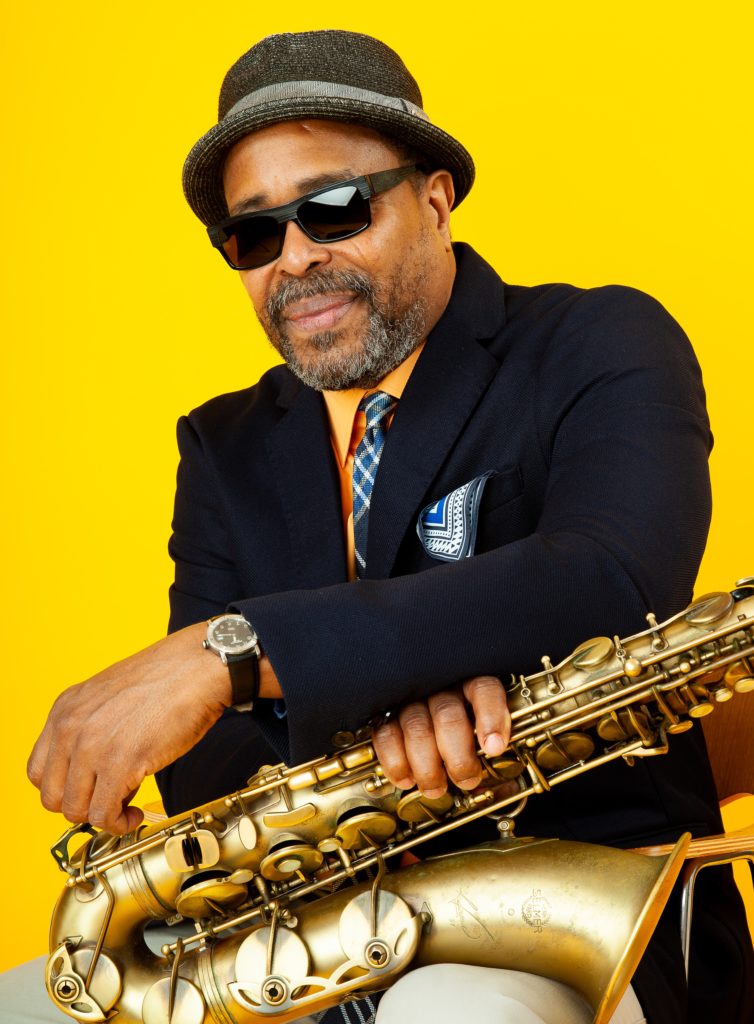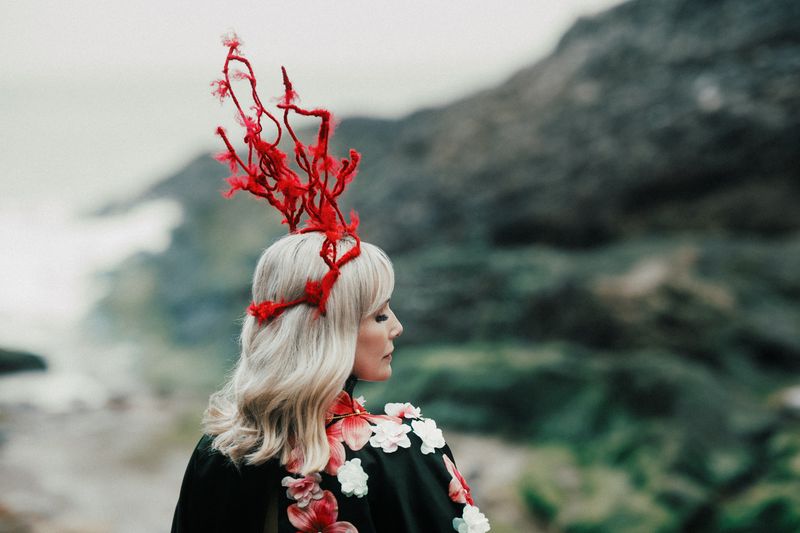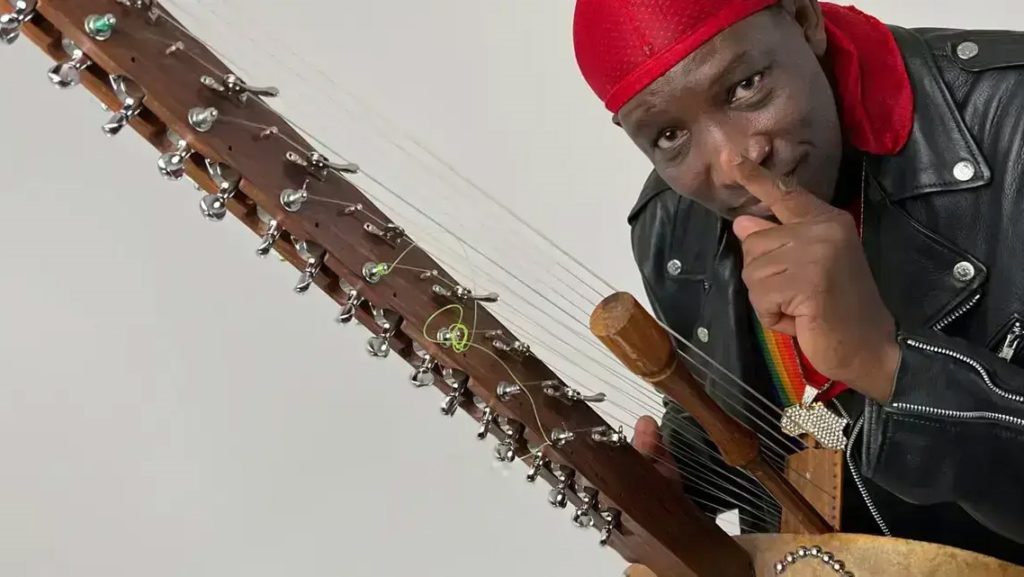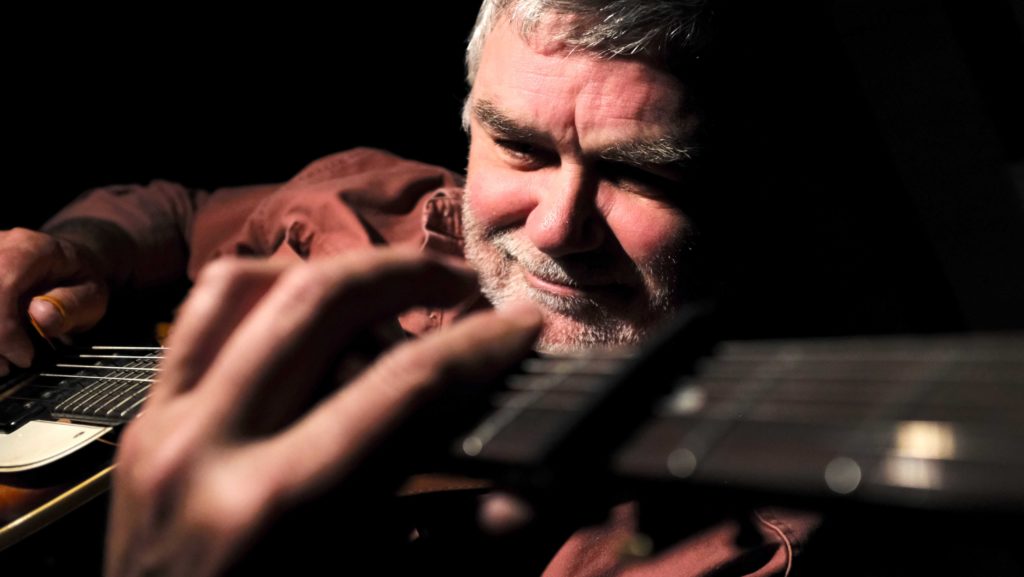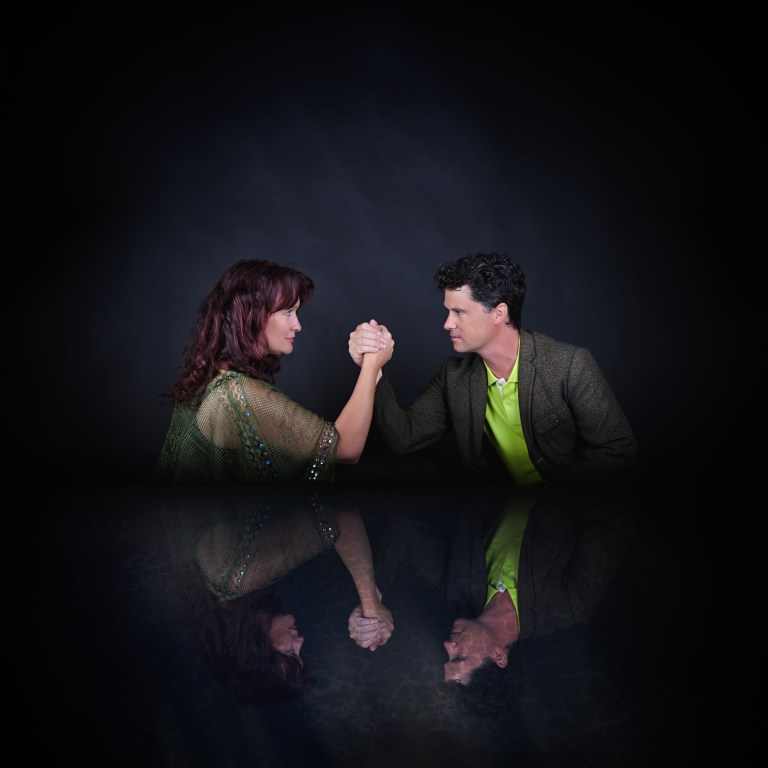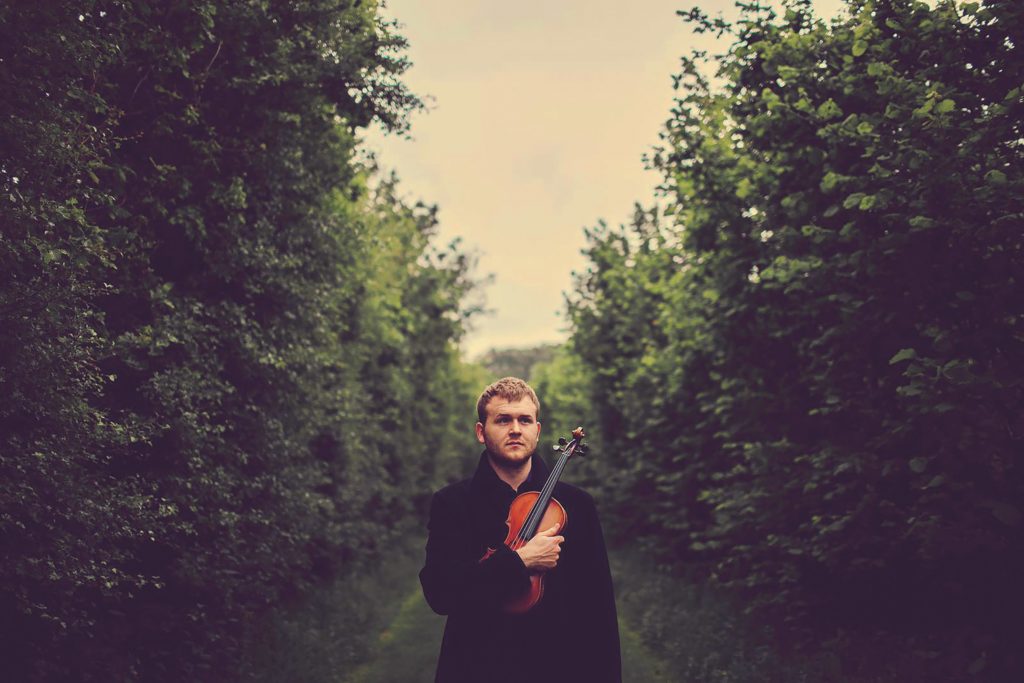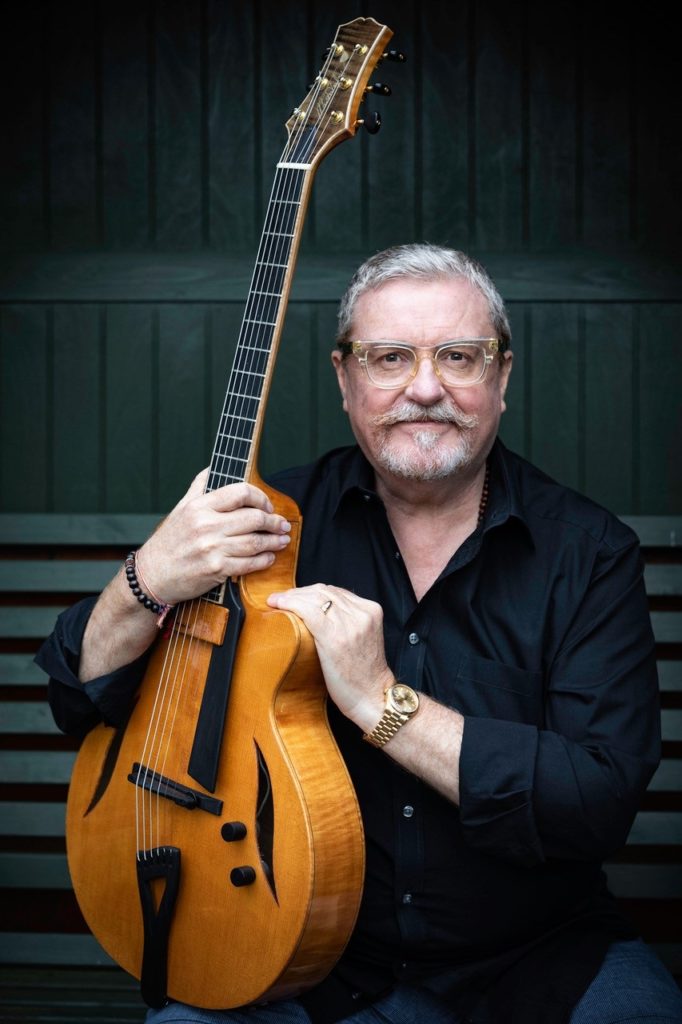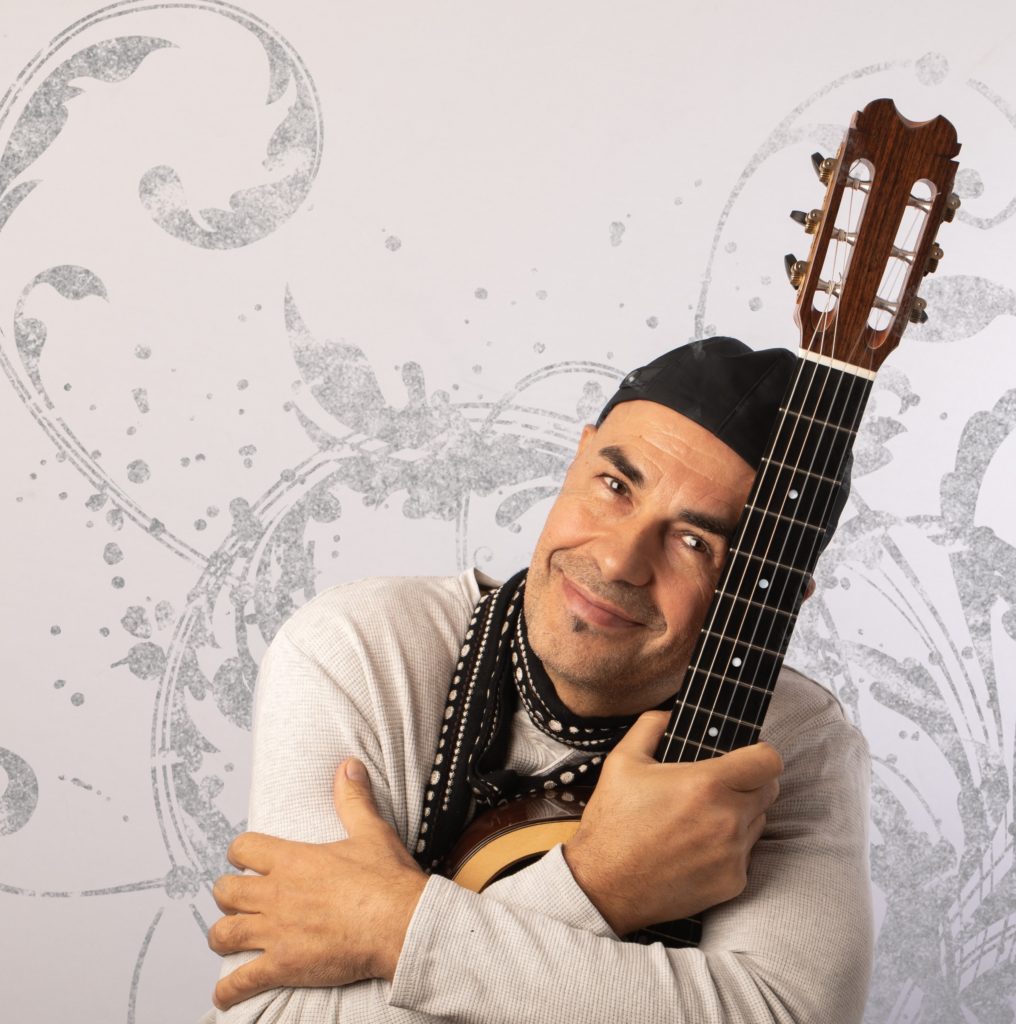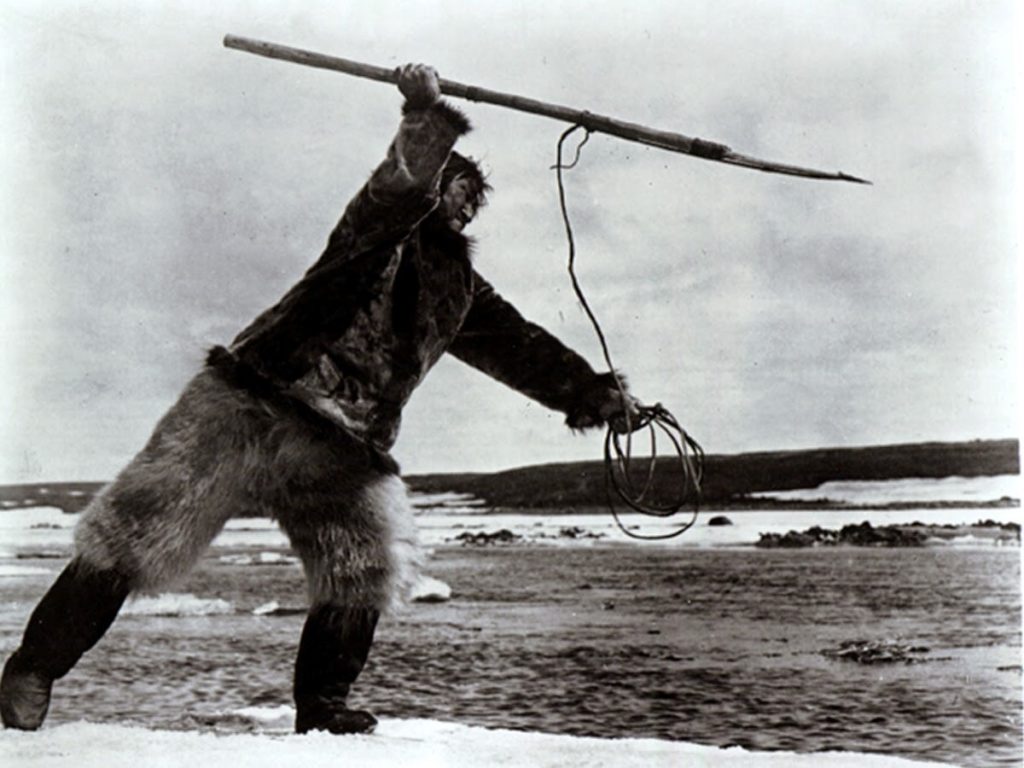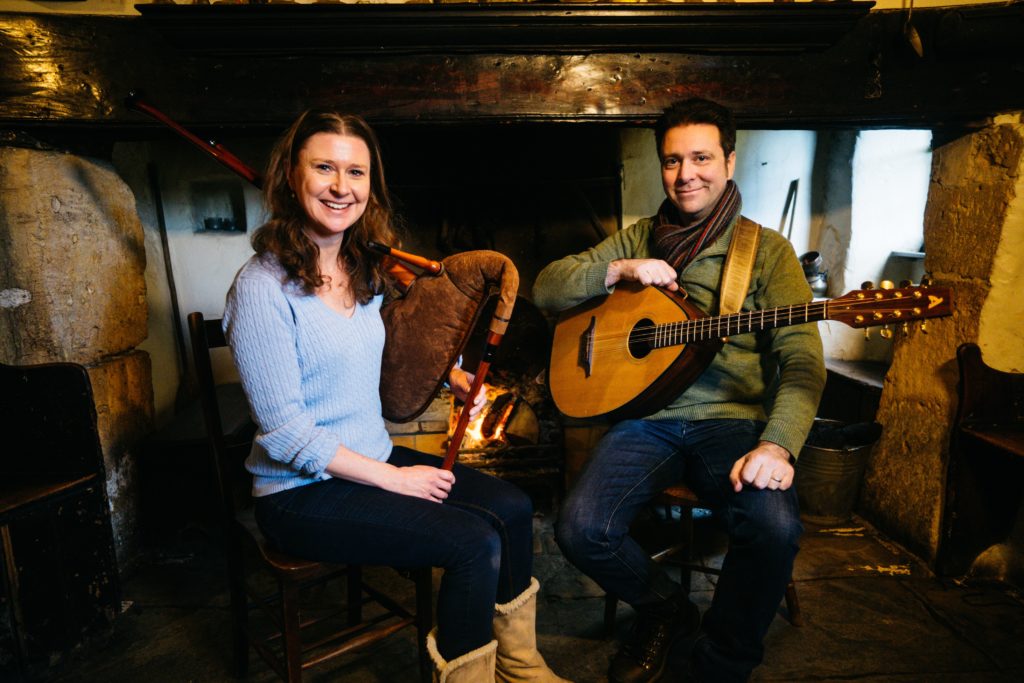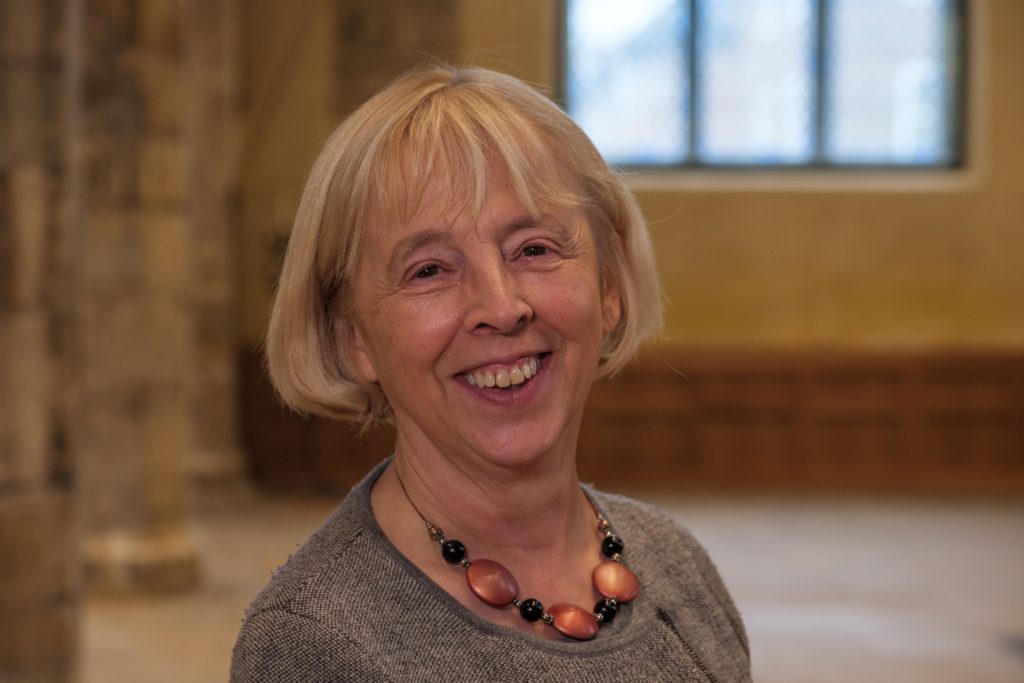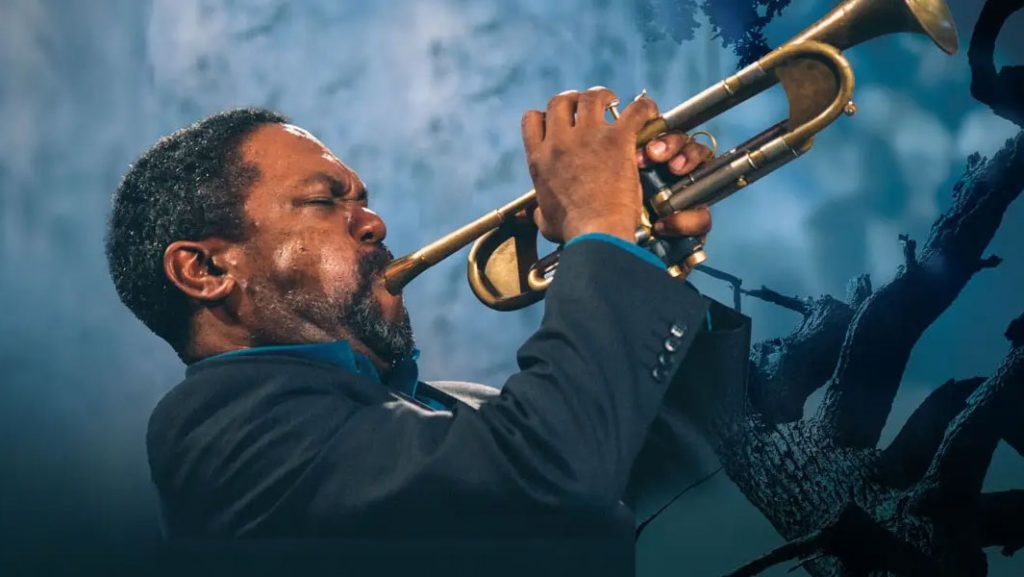
Trumpet player Byron Wallen: Performing Black Flag at the NCEM next Friday
JAZZ trumpet player, composer, traveller and tutor Byron Wallen returns to the National Centre for Early Music, York, on October 24 with a very personal project, Black Flag, to mark Black History Month.
Joined by pianist and keyboard player Nick Ramm, Londoner Byron will share his exploration of childhood memories and the emotional strains between a mother and her son, separated by the chasm of an ocean.
Byron, 56, was born in London, on July 17 1969 – while the Apollo 11 crew were on the way to the Moon – to parents from Belize and was brought up in a musical family, one of his three siblings being composer Errollyn Wallen (now Keeper of the King’s Music, a post once held by Edward Elgar).
But that barely scratches the surface of his back story. “The reality of the situation is that I didn’t grow up with my mum, so that’s the whole idea behind Black Flag, with us being divided by the Atlantic Ocean” says Byron. “She left me when I was six months old when she went back to the States. She was working as a nurse and felt she could do better in the States, with relatives in New York.
“I was conceived in America, then she came over here to have me, so I could be with my much older sisters, who were raised over here for part of their lives. I was brought up by my aunt, my dad’s brother’s wife, so she wasn’t even a blood relative.
“I was brought up in Tottenham, North London, and the interesting thing is that my aunt is white and was raising me in Tottenham, which was a quite a black area of London. So I had my aunt as my ‘mum, growing up – she and my uncle split up when I was 11 – and when I went out, people would ask me ‘who’s this’ and I’d always have to explain my situation.”
Byron felt comfortable at his school, but because his sisters were eight, ten and 12 years older than him, he grew up feeling “like an only child”.
“So it was about learning as a child what’s important as a child, when you want to fit in, not to stand out and not have to think about things,” he says. “But I did have to think about things. It was that thing of having to deal with understanding the situation, and so began a life-long search for what was going on and why my mum did that.”
Byron had participated in the Jerwood Foundation’s “Dangerous Duets” project at Wapping Hydraulic Power Station, composing an improvised work in response to Annabel Elgar’s photographs. “As I was writing, they triggered me into going back to my childhood because Annabel’s photos were about negotiating the boundaries between the comfort of familiar things juxtaposed with things that were challenging.”
Byron recalled childhood days of being spoilt but also bullied, and wrote Black Flag in response to images of his mother, his sisters, his aunt and uncle that will accompany next week’s performance. “I have these pictures of when my mum came back to visit after a year, two years and I really don’t know who she is, whereas she’s looking, ‘this is my son’.
“Even though I had a lovely ‘mum’, there was always a feeling of abandonment, thinking ‘why was I not with my real mum’. Using a film of photographs in Black Flag, from my childhood, my family pictures, I thought it would be good for people to see those pictures to bring them into that world.”
Byron and his mother did meet over the years. “But she has passed now, a good 12 years ago,” he says. “I don’t think you could ever really resolve it, but there were times when things came to a head, especially before I became an adult.
“I’d go out to America every two or three years for my summer holiday, and for few days she would be happy to see me, but then after a few days it would be too much. My mum and my aunt did get on really well, but there were tensions in my relationship with my mum, but I did get to know her better as an adult.”
Byron introduces Black Flag as a sonic exploration of the African Diaspora’s enduring psychological landscape. “This project charts the psychological and emotional frontiers of contact between a mother and her son separated by the Atlantic Ocean.
“It’s a deep dive into the multi-layered toxic waste caused by global imperialism and colonialism, giving voice to the creation of lost souls and generations living in socio-economic poverty, confined within a mental bubble of paralysis.
“At its heart, this is a journey into family dynamics. It acknowledges that every child has their own lived experience within the family unit, and that the same historical events can have profoundly different effects and consequences on each individual, even among those who share the same roots.”
Explaining how he transfers those sentiments into musical form, Byron says: “Through immersive music composition, we explore these shifting balances of power—between the urban and the rural, the collective and the personal, the past and the present—searching for a glimpse of light before the Sun.
“Yet, Black Flag is not solely a narrative of loss. It’s a profound act of testimony and reclamation. By giving sound to this pain and its varied impacts, we begin the process of cleansing and healing. The work is a testament to the unwavering resilience and defiant hope that defines the Diaspora.
“Our mission is to use the power of music not just to tell this story, but to forge a deeper understanding of how history shapes our present emotions, relationships, and family bonds, and to illuminate the path toward reclaiming our narrative power.”
Why did Byron choose Black Flag as the title for this project? “It’s the idea that if you raise a black flag, there are specific things it means. It’s the pirate flag, when you have no allegiance to anyone.
“Then there’s this amazing tree in Oxleas Wood, near where I live in South East London. A large area of ancient woodland in Eltham, where I found this tree that looked like a flag, so I used it for the album cover and in the film.”
The significance of Black Flag is best understood not within the confines of a single month [Black History Month], but within the continuous, living context of the African Diaspora’s history and its present-day realities, says Byron.
“The project directly engages with themes that are foundational to understanding this ongoing story, Firstly: Pride in Our Roots versus The Rupture, exploring the profound chasm created by the transatlantic slave trade and colonialism—the forced separation of families and the severing of ties to ancestral homelands.
“Secondly, Truth to Power. Composition is an act of speaking truth. It confronts the uncomfortable, often silenced narratives of intergenerational trauma, socio-economic paralysis, and the psychological toll of imperialism. It uses art not for comfort, but for confrontation and testimony, giving sound to a pain that history books often sanitise.”
Thirdly, says Byron, Family Dynamics as Historical Microcosm. “By focusing on the different lived experiences within a single family, Black Flag makes this vast history intensely personal. It shows how systemic forces fracture into unique, individual realities. The same historical events – separation, migration, poverty – land differently on a mother and her son, illustrating that there is no single ‘Diaspora experience’,but a constellation of related yet distinct wounds and strengths
Lastly, says Byron, Creativity, Courage and Change. “Ultimately, the act of creating Black Flag is itself a powerful statement. It represents the ‘glimpse of light’ – the use of creativity to break through the ‘mental bubble of paralysis’.
“It takes courage to articulate this journey, and in doing so, the work contributes to a broader cultural shift, changing how we understand and discuss legacy, memory and resilience.”
Byron Wallen, trumpet & flugelhorn, and Nick Ramm, piano & keyboards, perform Black Flag, National Centre for Early Music, Walmgate, York, on October 24, 7.30pm. Box office: 01904 658338 or ncem.co.uk.
Did you know?
BYRON Wallen is studying for a PhD in musical composition at Trinity Laban Conservatoire of Music and Dance, in Greenwich, London. He also teaches there and at a music conservatoire in Switzerland.
Did you know too?
DURING his visit to York, Byron will work with young jazz players from York Music Forum and compositional students from across York earlier in the day, exploring the universal themes of identity and heritage.

